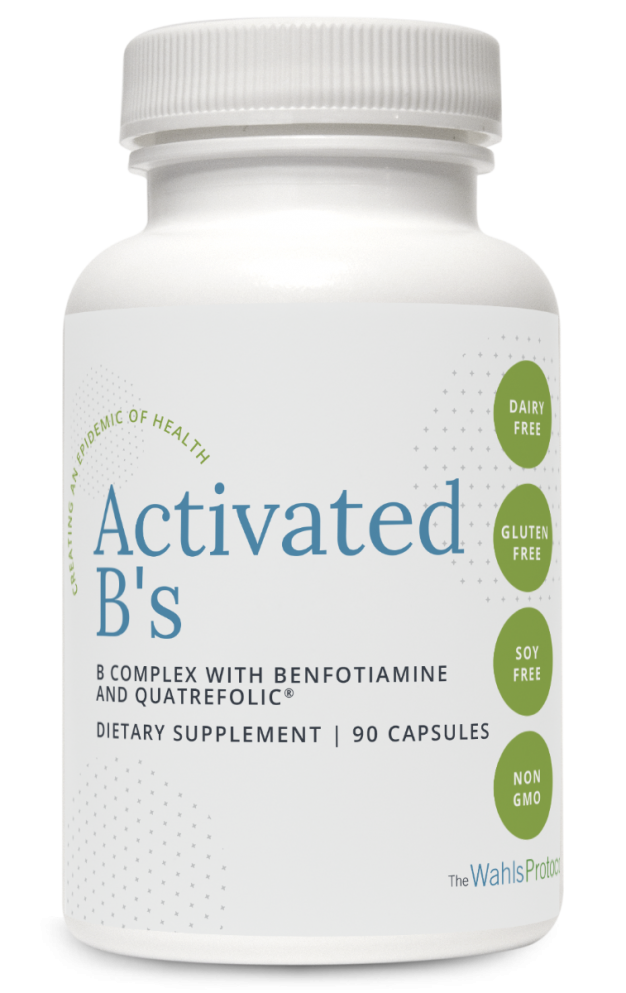Why your B Vitamins should be activated
Do you have a family history of neurological, psychiatric, or cardiovascular disease? I do–I have several uncles who developed angina in their 40s, aunts and uncles with neuroimmune problems affecting their peripheral nerves, and relatives with severe mood disorders. All these diagnoses in my family mean it’s likely I have genetic variants that affect how my body metabolizes B vitamins.
The genetic variants I likely have are single nucleotide mutations, called SNPs. An SNP is when a nucleotide is swapped in the DNA. This change can produce good or bad outcomes. Sometimes SNPs make changes that are fatal. Sometimes SNPs improve the vitality of the organism and are beneficial. In other cases, SNPs create inefficiencies in our chemistry and increase the probability of chronic symptoms.
Let me explain how this happens. As our cells go about the business of conducting the biochemistry of life, they make RNA from DNA. RNA is then used to make proteins that facilitate the biochemistry that must happen to keep our bodies alive and functioning. An SNP in the DNA leads to a change in RNA and the proteins it produces. If the RNA has an error, that error will also show up in the proteins used to make blood vessels, bones, muscles, and other structures in our eyes, heart, and brain. The right, error-free proteins are critical for our immune cells to continue to protect us from external (infection) and internal (cancer) threats.
B vitamins are a group of compounds that our cells use to facilitate chemistry that is particularly important to the eyes, heart, and brain. When I learned more about SNPs in 2011, I realized that I likely have several that involve the B vitamin pathways because of the numerous relatives on both sides of my family with brain and heart issues as well as my two aunts with macular degeneration who are going blind. I started taking B vitamins at the recommendation of my neurologist in 2003 when I had severe fatigue, which gave me a bit more energy. I realize now that’s because B vitamins support the essential chemistry of life and mitigate some of the damage done by the SNPs I must have.
The foods that we eat have a variety of vitamins and minerals that are critical to healthy cells and bodies. Most commercially available vitamin supplements are made with synthetic vitamins, which share many of the properties of the naturally occurring vitamins but are not quite as effective. For example, folic acid is a synthetic B vitamin that is used to fortify white flours to reduce the risk of neural tube defects but has been associated with increased risk of cancer (likely because it can suppress some of the activity of natural form of folate).1,2
Homocysteine is a marker for the efficiency of B vitamin utilization by our cells. Elevated homocysteine is toxic to brain cells3,4 and retinal cells5,6 and is a marker of insufficient B vitamin levels, which can contribute to the development of cardiovascular, neurological, and psychiatric disorders.4,7 The conventional cut off for elevated homocysteine is 15 mmol/L, though some labs place the upper level at 10mmol/L.
I recommend that my patients avoid synthetic vitamin preparations and instead take a B vitamin complex that utilizes the activated forms of the vitamins, which bypass problem SNPs. The activated form of vitamin B12 (methylcobalamin), B9, (methylfolate) and B6 (pyridoxal-5-phosphate) reduces homocysteine to more optimal levels. I also recommend activated vitamin B1 (benfotiamine), which supports brain,8 retinal9,10 and heart health11, and activated vitamin B2 (riboflavin 5 phosphate) for those with migraine and chronic headache.12,13 Other activated B vitamins that may be useful include niacin and niacinamide, which have been helpful in migraine and chronic headache14; choline, an important nutrient for cognition and mental health,15,16; and biotin, which is involved the production of myelin.17
All B vitamins work together synergistically to support the physiology of our cells.18,19 Thus I urge my patients to take a B complex to reduce the risk of insufficiency of these key vitamins and the symptoms that may cause or worsen. In the Wahls Protocol® Supplement line Activated Bs contain the entire spectrum of B vitamins to support cardiovascular, neurological, and retinal health, including vitamins B2, B6, and B12; benfotiamine, a fat soluble, more physiologically active form of thiamine; and folate as Quatrefolic®, which is proven to have greater stability, solubility, and bioavailability than calcium salt forms of 5-MTHF.
Activated Bs are an excellent way to ensure that you do not have an insufficiency of these key vitamins, even if you have a SNP that increases your vulnerability to retinal, cardiovascular, neurological, or psychiatric issues.





